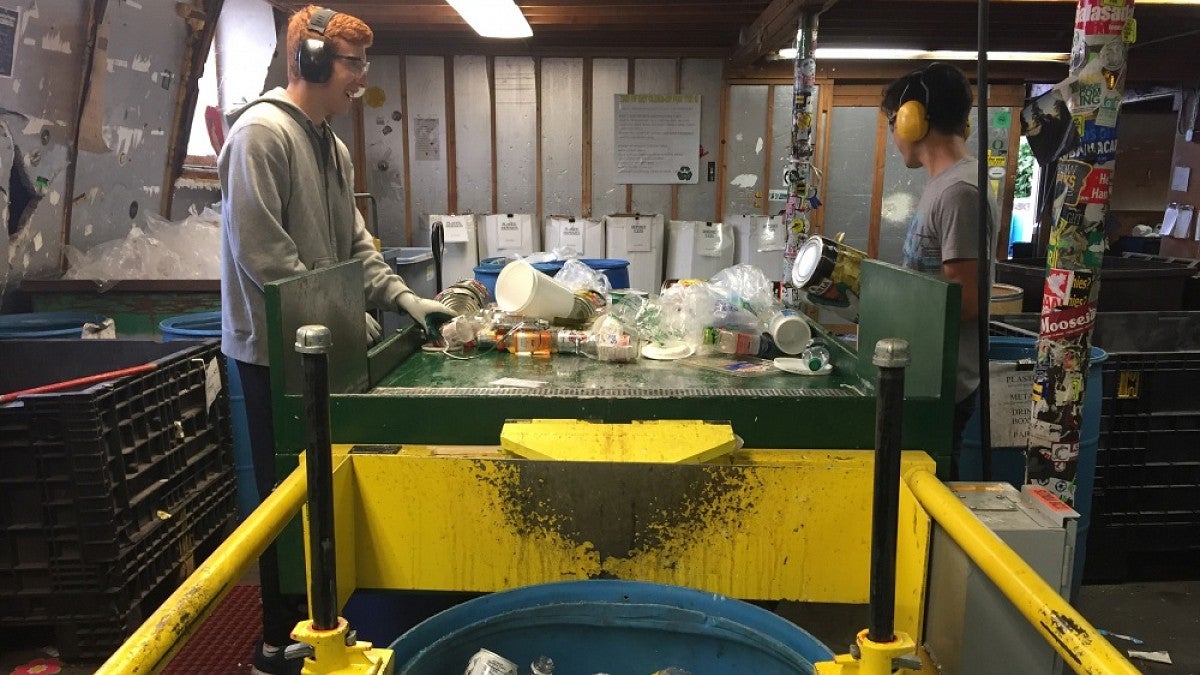This fall, the University of Oregon Zero Waste Program is welcoming students with open arms, a recycle bin and a reusable water bottle, hoping to teach incoming students the value of sustainable thinking.
Move-in this year serves as an important time to encourage students and families to break down their boxes, read the signs on bins and learn the importance of sustainable thinking.
“Our success and our growth throughout the years have been because of student participation and excitement,” said Robyn Hathcock, services manager for Zero Waste. “It is valuable to have students participate and know that they are what makes this program possible.”
Zero Waste is one of the longest running student recycling programs in the country with more than 25 years of student engagement and education on campus. Last year, the program handled more than 500 tons of paper products alone.
Ten temporary recycling and trash locations were available around residence halls on Thursday and Friday of move-in. That helped centralize sometimes hard-to-find disposal locations.
Zero Waste workers tend to sites regularly. Their responsibilities include flattening boxes, emptying bins and educating families.
First-year students also can help reduce their waste in the dormitories by bringing less stuff to begin with.
“The tendency is to stock the room with everything before they’re actually in the space,” Hathcock said. “Be in the space for a little while, figure out what you need, and develop your room and supplies accordingly.”
There are also many ways students eating in the dining halls can help reduce waste:
- Using reusable utensils and mugs.
- Opting out of the straw and lid when using disposable cups.
- Buying food with recyclable packaging.
- Replacing to-go packaging with reusable trays.
- Following directions posted on all bins.
Since 2013, student participation and excitement has helped the UO remain at 50 percent waste recovery for six consecutive years.
A large portion of campus waste recovery comes from composting initiatives. When composting began in 2010, the program generated 48 tons of material. Last year, the program generated more than 370 tons of material.
“A student knowledgeable about recycling and zero waste is golden,” Hathcock said. “When they know how to sort materials properly, that’s something they can carry with them throughout their career at the UO and beyond.”
To learn more about the Zero Waste Program or read the sorting guidelines, check its website.
—By Bryan Dorn, University Communications


